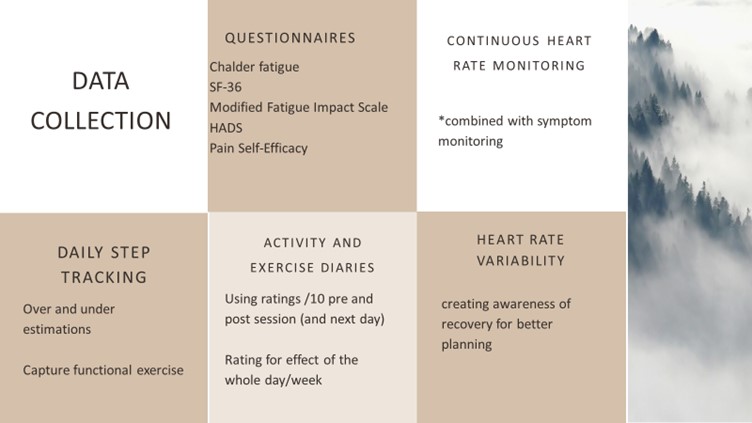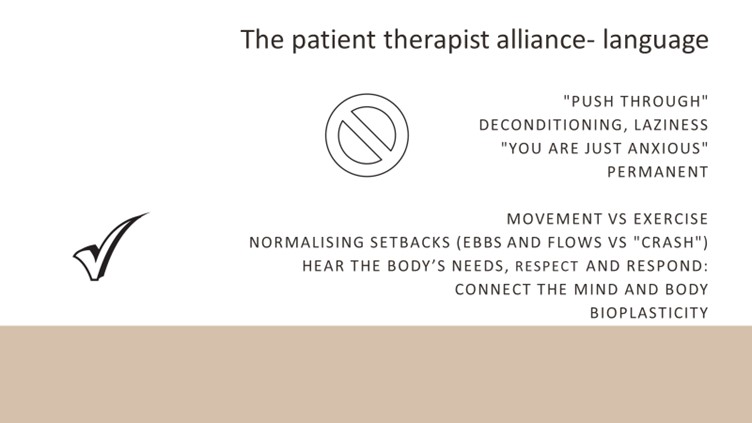Chronic fatigue syndrome (ME/CFS). Presented by Florence Kelly AEP
Part 2: Providing compassionate and effective EP treatment
We have the privilege of observing the process of working with a client with ME/CFS from the initial assessment through to potential discharge. To start out, Florence suggests we address the perpetuating factors of ME/CFS in order to create space and opportunity for movement prescription. As you might expect, the prescription variables for this population are broad and person-centred. In lieu of specific recommendations, Florence cleverly offers us overarching guidelines and suggestions for helpful language.
The task of data collection can feel daunting for both practitioner and client; therefore, it is worthwhile to consider the variety of options available, tailor the plan to the individual and be prepared for a lengthy process. It is worth doing as it allows you to develop rationales for your advice, and is a process that develops insight and a working understanding for expanding self-management.
Working in this area can provide tremendous satisfaction and hope. There are reasonable challenges, and these can be managed through thoughtful planning and well-focussed intention. Florence closes with suggestions for supporting yourself as a practitioner as you support those with ME/CFS.


Florence is a senior Accredited Exercise Physiologist and Yoga teacher. She has spent the last decade working in private practice, now entirely dedicated to clients with invisible illnesses. As a mentor and trainer, her role is connecting practitioners to the resources, knowledge and community needed to support clients who are often put in the “too hard basket”.
Together, Florence Kelly and Jennifer Smallridge have founded Connection Medicine. They provide continuing education opportunities for health professionals who support people with invisible illnesses, persistent fatigue and pain.